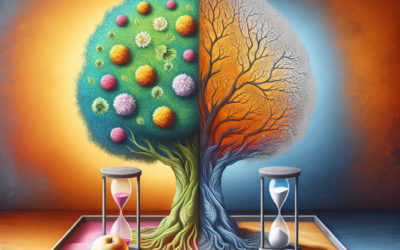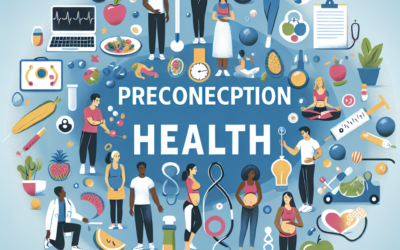Becoming a mom is a big change, and healing after childbirth is as important as the baby. As a new mom, taking care of yourself should be your main focus. Important postpartum recovery tips include getting enough rest, eating well, and knowing it’s okay to ask for help.
But, you might face some tough times too. Studies show that 10-20% of new moms might get postpartum depression. This highlights the need for support in postpartum wellness. Whether you had a C-section or are dealing with natural symptoms, getting 7-9 hours of sleep a night helps a lot. Also, thinking about getting a postpartum doula can be a big help. Remember, taking care of yourself after having a baby is not just nice—it’s necessary for your overall health.
Key Takeaways
- Recognize the significance of self-care and rest for postpartum recovery.
- Understanding mood swings and symptoms is crucial—reach out if they intensify.
- Whether natural birth or a cesarean, follow-up care, including a complete postpartum exam, is vital.
- Stay nourished and hydrated—your diet affects recovery and mental health.
- Incorporate gentle exercise, like walking and Kegel exercises, into your routine.
- New mom self-care influences overall health—dedicate time for personal well-being.
- Be alert to any signs of complications, such as postpartum hemorrhage, and seek medical attention immediately.
Understanding the Postpartum Period and Its Challenges
The postpartum period, also called the fourth trimester, lasts about 12 weeks after your baby is born. It’s a time of big changes in your body and mind. Knowing how to care for yourself during this time is key.
The Basics of the Fourth Trimester
In the first weeks, your body changes a lot. You might feel afterpains and mood swings due to hormonal changes. It’s important to let your body heal at its own pace.
Postnatal recovery advice from doctors is to watch for symptoms and seek help if needed. Eating foods high in fiber and doing Kegel exercises can help with recovery.
Adjusting to Newfound Motherhood
Getting used to being a mom means managing your time well and taking care of your health. Eating right, drinking plenty of water, and resting are important tips. This helps you deal with sleep issues from feeding at night.
Recognizing Baby Blues vs. Postpartum Depression
It’s important to know the difference between ‘baby blues’ and postpartum depression. Baby blues are common and usually go away in two weeks. But, if you feel really down for more than two weeks, it might be depression.
If you’re feeling down for too long, it’s time to talk to your doctor. They can help you get the right care for your mental health.

Having a strong support system, like family and friends, can really help you recover. Remember, taking care of yourself is important for you and your baby.
Postpartum Recovery Tips for Physical Healing
Starting your postpartum healing journey means focusing on physical care. It’s about managing pain and improving recovery. Every step you take is important for your postpartum wellness. Here are some tips to help your body heal.
Necessities for Hygiene and Pain Relief
Proper hygiene and pain management are key in postpartum recovery. After giving birth, you might experience vaginal bleeding and discharge. Using sanitary pads instead of tampons helps prevent infections. Witch hazel can help with hemorrhoids.
- To soothe perineal soreness, consider a sitz bath or numbing sprays.
- For C-section recovery, keep the incision clean and monitor for any signs of infection.
Using pain relief methods, whether over-the-counter or natural, can make you feel better. Effective pain management is crucial for your recovery.
Gentle Exercises to Boost Recovery
Light exercises can help your body and mind. Starting with walks or stretching can improve your well-being.
- Kegel exercises strengthen pelvic floor muscles, helping to manage urinary incontinence post-childbirth.
- Engaging in core strengthening activities can also aid in regaining your pre-pregnancy body strength and shape.
Always check with your healthcare provider before starting any new exercise. This ensures they’re safe for you.
The Significance of Rest and Sleep
Getting enough rest is key for postpartum recovery. Try to sleep as much as you can, even if it means adjusting your schedule. Managing your time helps you rest better, which is important for new mom self-care.
Sleep heals your body and mind. It helps with physical recovery and emotional strength. Make your sleeping area comfortable and try to avoid sleep disruptions.
Remember, your recovery journey is unique. Being kind to yourself is part of new mom self-care. Every small step helps your health and well-being.
Postpartum Recovery Tips for Emotional Well-being
Becoming a mother is both thrilling and challenging. Many women feel a wide range of emotions after giving birth. It’s crucial to focus on your emotional health as much as your physical recovery.
Enjoying the happy moments and dealing with anxiety can be tough. Knowing about the emotional ups and downs helps you find support and care for your mental health.
Navigating Emotional Changes and Seeking Support
New moms often feel overwhelmed by what they see on social media. It’s important to remember that a C-section is a big surgery that needs time to heal. Also, conditions like postpartum depression and anxiety are common and can be treated.
About 1 in 9 women get postpartum depression, says the CDC. Joining support groups can help a lot. Having a strong support system is key to feeling better after having a baby.
The Importance of Self-Care and Personal Time
Being kind to your baby comes naturally, but taking care of yourself is just as important. Eating well, drinking enough water, and sleeping enough can boost your health. Make time for yourself, keep taking prenatal vitamins if you’re breastfeeding, and start gentle exercises slowly.
Self-love and care are vital for your emotional health. For more tips on pregnancy and postpartum, check out postnatal recovery advice online.














